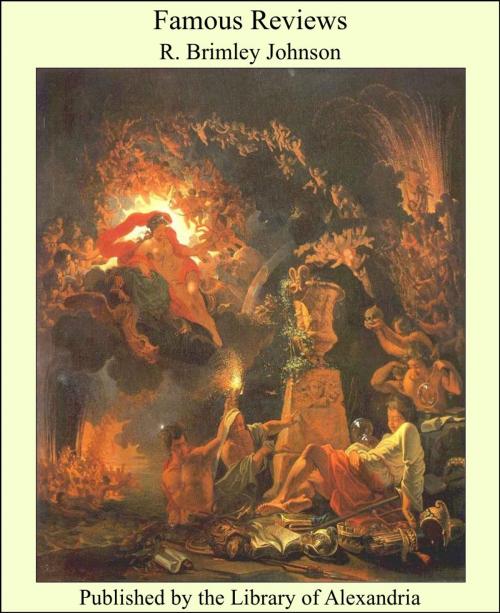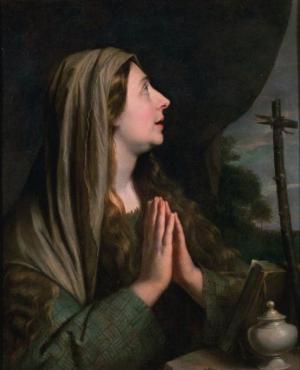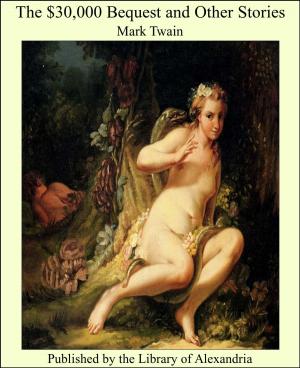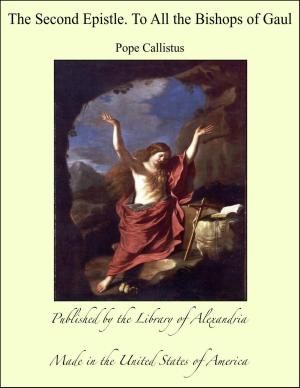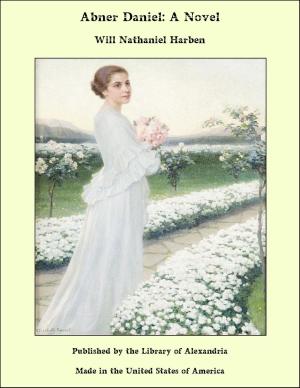| Author: | R. Brimley Johnson | ISBN: | 9781465529664 |
| Publisher: | Library of Alexandria | Publication: | March 8, 2015 |
| Imprint: | Language: | English |
| Author: | R. Brimley Johnson |
| ISBN: | 9781465529664 |
| Publisher: | Library of Alexandria |
| Publication: | March 8, 2015 |
| Imprint: | |
| Language: | English |
Although regular literary organs, and the critical columns of the press, are both of comparatively recent origin, we find that almost from the beginning our journalists aspired to be critics as well as newsmongers. Under Charles II, Sir Roger L'Estrange issued his Observator (1681), which was a weekly review, not a chronicle; and John Dunton's The Athenian Mercury (1690), is best described as a sort of early "Notes and Queries." Here, as elsewhere, Defoe developed this branch of journalism, particularly in his Review (1704), and in Mist's Journal (1714). And, again, as in all Other departments, his methods were not materially improved upon until Leigh Hunt, and his brother John, started The Examiner in 1808, soon after the rise of the Reviews. Addison and Steele, of course, had treated literary topics in The Spectator or The Tatler; but the serious discussion of contemporary writers began with the Whig Edinburgh of 1802 and the Tory Quarterly of 1809. By the end of George III's reign every daily paper had its column of book-notices; while 1817 marks an epoch in the weekly press; when William Jerdan started The Observator (parent of our Athenaeum) in order to furnish (for one shilling weekly) "a clear and instructive picture of the moral and literary improvement of the time, and a complete and authentic chronological literary record for reference." Though probably there is no form of literature more widely practised, and less organised, than the review, it would be safe to say that every example stands somewhere between a critical essay and a publisher's advertisement. We need not, however, consider here the many influences which may corrupt newspaper criticism to-day, nor concern ourselves with those legitimate "notices of books" which only aim at "telling the story" or Otherwise offering guidance for an "order from the library
Although regular literary organs, and the critical columns of the press, are both of comparatively recent origin, we find that almost from the beginning our journalists aspired to be critics as well as newsmongers. Under Charles II, Sir Roger L'Estrange issued his Observator (1681), which was a weekly review, not a chronicle; and John Dunton's The Athenian Mercury (1690), is best described as a sort of early "Notes and Queries." Here, as elsewhere, Defoe developed this branch of journalism, particularly in his Review (1704), and in Mist's Journal (1714). And, again, as in all Other departments, his methods were not materially improved upon until Leigh Hunt, and his brother John, started The Examiner in 1808, soon after the rise of the Reviews. Addison and Steele, of course, had treated literary topics in The Spectator or The Tatler; but the serious discussion of contemporary writers began with the Whig Edinburgh of 1802 and the Tory Quarterly of 1809. By the end of George III's reign every daily paper had its column of book-notices; while 1817 marks an epoch in the weekly press; when William Jerdan started The Observator (parent of our Athenaeum) in order to furnish (for one shilling weekly) "a clear and instructive picture of the moral and literary improvement of the time, and a complete and authentic chronological literary record for reference." Though probably there is no form of literature more widely practised, and less organised, than the review, it would be safe to say that every example stands somewhere between a critical essay and a publisher's advertisement. We need not, however, consider here the many influences which may corrupt newspaper criticism to-day, nor concern ourselves with those legitimate "notices of books" which only aim at "telling the story" or Otherwise offering guidance for an "order from the library
